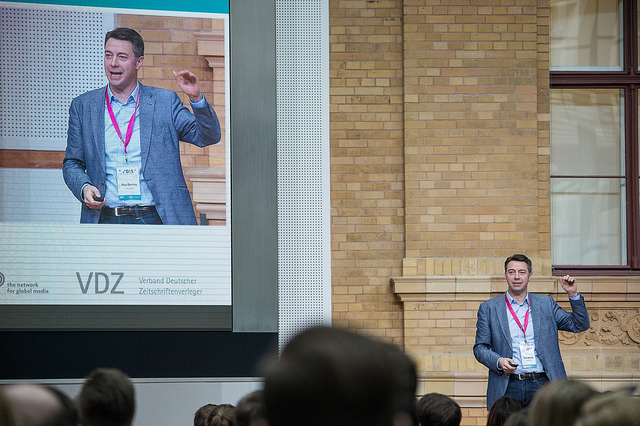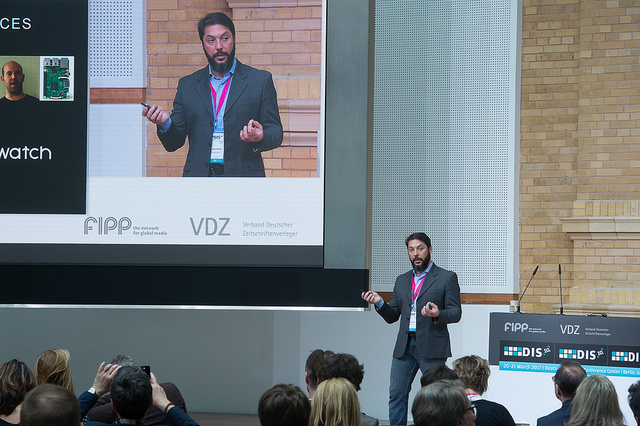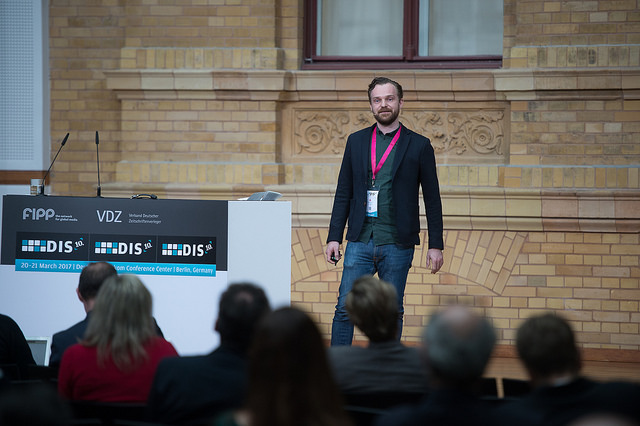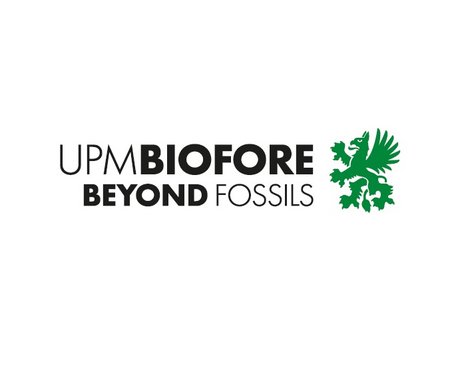Connected World - connected marketers and the potential of voice
We live in a connected world where often the first thing, and indeed the last thing people do each day is reach for their online devices.
The growth of the connected world has presented both opportunities and new challenges for publishers and some of the key issues were addressed at DIS by speakers with very different roles and experience.
The first to address the topic was Paul Berney who is Co-Founder and Managing Partner, mCordis and The Connected Marketer Institute.
Paul began his presentation by going back in time to the birth of printing. He explained that when Gutenberg developed the printer people could not get their heads around how the tech would change their world.
"This a common theme," argued Paul citing a concept called the 'history illusion' which decrees that it is way it is easier to think about the past than the future. "Many of us struggle with future shock - too much change in too shorter time," added Paul.
Paul said that he wanted to focus on change - which he says is at the heart of a concept core to his company - 'the connected marketers.'
Paul explains "the more connected devices you have, the more you live in state of connectedness. The more you live in that state the more it impacts on your behaviour. This leads to rise of the connected individual and connected brands and connected marketers."
"The biggest brands in the world are connected and starting to change because we have changed," added Paul.
Paul believes that connected marketers understand the needs of connected individuals. They see how successful brands can merge the physical and the digital. He cited as an example Marriott Hotels which enables people to use their app when they stay at the hotel to do everything from check-in through to closing the curtains. Everything is synced together.
He then gave other examples of where the connected world and the real world meet such as Pokemon Go.
"We know every surface and product will become digital with more and more connections," argued Paul. "Super connected brands add sensorial and emotional experiences."
For example Starbucks blend digital experience in the physical world with their mobile order app. The process is designed to speed things up, no more queueing, it is all about developing an emotional connection with you
Paul then looked at how people act. He discussed mobile phones and how they aid discovery making it easy to access content. He also said that marketers need to focus more on the problems they are trying to solve and highlighted how there is no linear journey for most connected individuals.
Marketers and brands need to think "how can I help my audience find, buy or choose something that they love. The language people use changes their mindset."
Finally Paul made the point that no one likes complexities and proclaimed Amazon as being the king of companies who make things easier for its customers.
Paul went back to his initial point. He said he believes that "a connected marketer is a renaissance person, they are masters of everything. In the end marketing is a mixture of science and art."
The potential of voice
One device that perhaps possibly exemplifies the connected world more than any other at the moment is the Amazon Echo. The intelligent smart speaker has, in the space of a few years, shifted from being seen as a strange gimmick from the online retailer through to a revolutionary device that is changing the way people interact with devices.
Max Amordeluso, EU Head of Alexa Skills Kit (ASK), Amazon, Luxembourg started his presentation by explaining that "voice is everywhere. It can give you an immediacy that your hand does not provide."
He then ran through a history of the way we interact with computers and devices saying we are now at the point where the dominant method will be voice user interface - leveraging voice for interactions between people and machines.
This has come about as in the last few years that has been a dramatic improvement in speech science and understanding of voice.
He said this, coupled with the importance of AI that makes the system smarter and the way that cloud storage gives voice controlled devices flexibility has been transformative.
Ultimately Max said that Amazon believes that voice is the next major disruption in computing. He added that the Amazon Echo was inspired by Star Trek computer in that it interacts with humans in natural way.
"We wrote a press release to show what the ideas was,"added Max "and then elaborated on the idea so that it can be used internally."
Max also said that Amazon was working on innovations such as ESP, which enables users to walk around the house and give instructions to multiple devices. There is also Alexa Voice Service which enables companies to place Alexa into a real or virtual mobile apps. There is also the Alexa Skills Kit which features new functionality, basically apps for Alexa.
Max then introduced Tobias Hellwig, Editorial Developer, SPIEGEL Tech Lab, Germany who has been working on Amazon skills for his company. Tobias says he was inspired by the talking car in Knightrider and was very excited when Alexa launched. Speigel had access to an early German version of Alexa and were able to create a Flash Briefing skill with headline news. He said that the company had to work in a new way on the skill as he admitted that read out content does not sound great automatically.
Spiegel are also developing a longform skill too. "With Alexa there is a lot of discover," he added.
Max then underlined the level of resources that Amazon is pouring into voice technology development with many developers working on a variety of projects.
"Voice is really here," he added. "We have had 34,000 five star reviews, high level of engagement, average users interact with Alexa 16 times a day."







